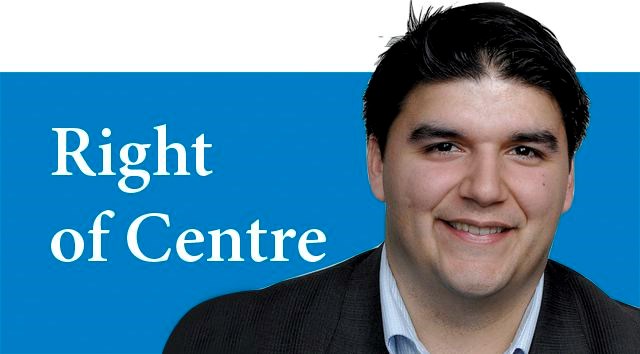I was asked the other day why I hadn't weighed into the low voter turn out for the city referendum on rebuilding the Four Seasons Pool and the fire hall. Truth be told, there were more pressing stories worth discussing at the time, but upon further reflection, there might be another angle to this narrative that bears scrutiny. Namely, what does the low voter turnout mean for the municipal elections a year away and our changing city culture?
The composition of this city council has always been hard to nail down with any kind of precision. With all due respect, it appears to be an odd welding of "the activist centre" so often quoted by big tent Liberals, both local and national, with a strong flavouring of unionist and green sentiment. From bike lanes to renaming the park to engaging student leaders to the call for city plan proposals, there is clearly both progressive and practical elements at play.
For the most part, it would appear that much of the voting population has been compliant with the agenda at hand. There have been obvious and avoidable hiccups along the way - public art is always a boondoggle waiting to happen, the bike lanes ought to have been contingent on a promise to crack down on badly behaved cyclists, and the renaming of the park was never persuasively argued, allowing the issue to ferment into a sizeable public wedge.
But I predict that in a year's time this council will be re-elected without any changes to its composition, partly because of its fair to middling governance, but also thanks to changes in the demographics and attitudes of BC's Northern Capital: "Prince George is a public sector town," as one of our newest councilors exhorted. And indeed, thanks to city hall, Northern Health, UNBC, CNC, the courthouse and the dozens of government departments here, this is true.
To some of us, the idea that Prince George has become little more than the Gatineau of Northern Canada is a terrifying sign of the times where tax transfers rather than primary industry propels society. For those employed in these sectors, as well as the burgeoning servant and entrepreneurial class that feeds off of their appetites for the good life of entertainment, food, and craft beer, all is well with the world. But the question begs to be answered - can this all last?
While my gut is swollen with the same decadent food and drink as these bourgeoisie, it still manages to tell me "no it can't," during my brief crawls between pubs. The old staples theory, as well as Bell's Managerial State have been proved wrong: the reliable income for any geographic entity remains primary resources, with conservative investments in "moving up the value-added chain," as needs warrant. Hewers of wood, not managers, keep economies stable.
However, there is no sign that a populist revolt will start before the next election. If it was to be so, that rebellion ought to have started with the latest referendum. In the end, Prince George might well be finally turning from its roots as a resource, boom and bust, blue collar town to a professional, service-based city full of nouveau riche sentiments.
What is certain is that our current mayor and council appear unopposed and unstoppable - for now.



